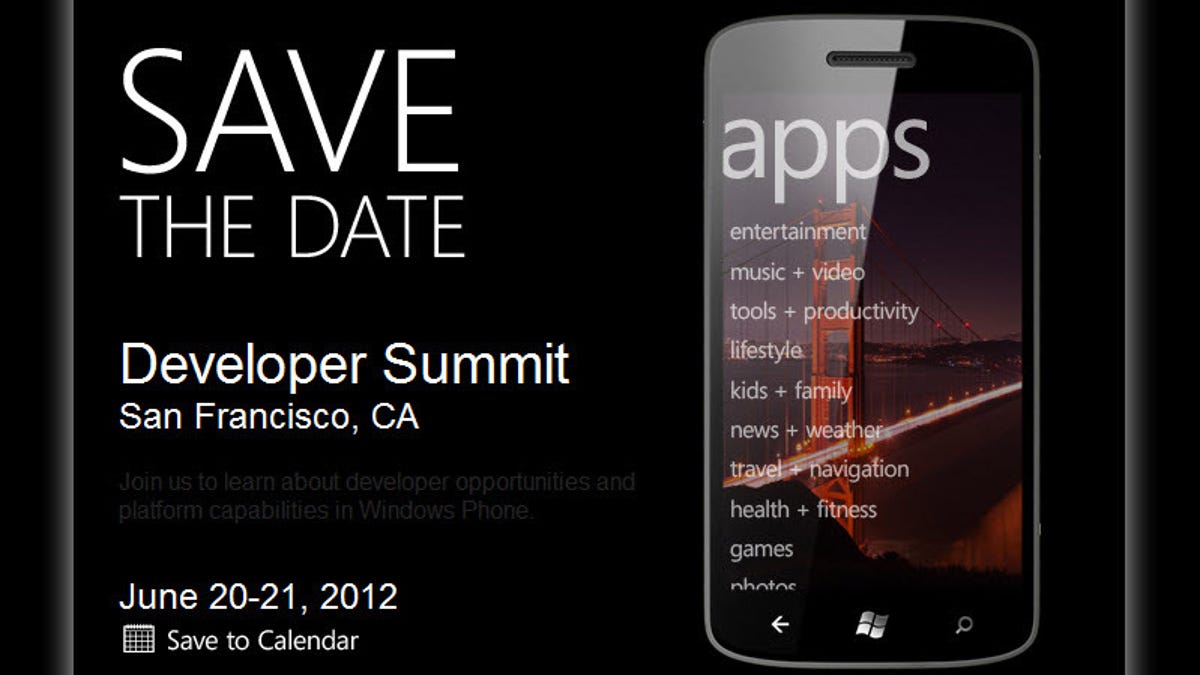Microsoft hopes Windows Phone summit can shrink the app gap
Microsoft is using cold, hard cash, and now a mini-conference, to lure developers away from Android and iOS.

Windows Phone OS may not have the market share or the apps, but one thing I will say is that Microsoft is finally going after developers with more vigor. This time it's to the tune of a developer summit on June 21 and 22.
Microsoft is serious about closing the gap separating its Windows Phone application Marketplace from Android's Google Play and iPhone's App Store. The San Francisco location couldn't be a better spot to tap into Silicon Valley's software-development mojo.
It isn't that the Redmond giant hasn't tended its app garden, which it had to restart from scratch after plowing under its previous Windows Mobile platform. In fact, Microsoft has been actively seeking top app shops and independent coders before ever announcing its first Windows phone.
More recently, Microsoft even began paying app authors for their Windows Phone attention, a tactic that seems to have turned at least a few developer's heads.
As a result, the Windows Phone app store spiked from 30,000 apps in May 2011, to 50,000 in December of that year, to 80,000 this April.
The steady rise in Windows Phone's app count isn't coincidence or luck. It's Microsoft's execution of a calculated business plan that acknowledges one of the key hurdles Microsoft must clear in order to break through Android and iOS in the mind of the phone-buying public.
The first step is winning over holdout developers. Microsoft will likely use the summit to recruit coders for Windows Phone 8, which we expect to preview earlier in June.
Windows Phone 8 will be Microsoft's largest test of its converging computing platform yet. Not only will it bring Windows Phone up to speed with Android and iOS features, it will also closely integrate with Windows 8 for tablets, laptops, and desktops.
With so much at stake, Microsoft's mobile developer's summit is surely just the beginning of a larger push to make Windows-born ecosystems cool again, underdog Windows-based phones included.

